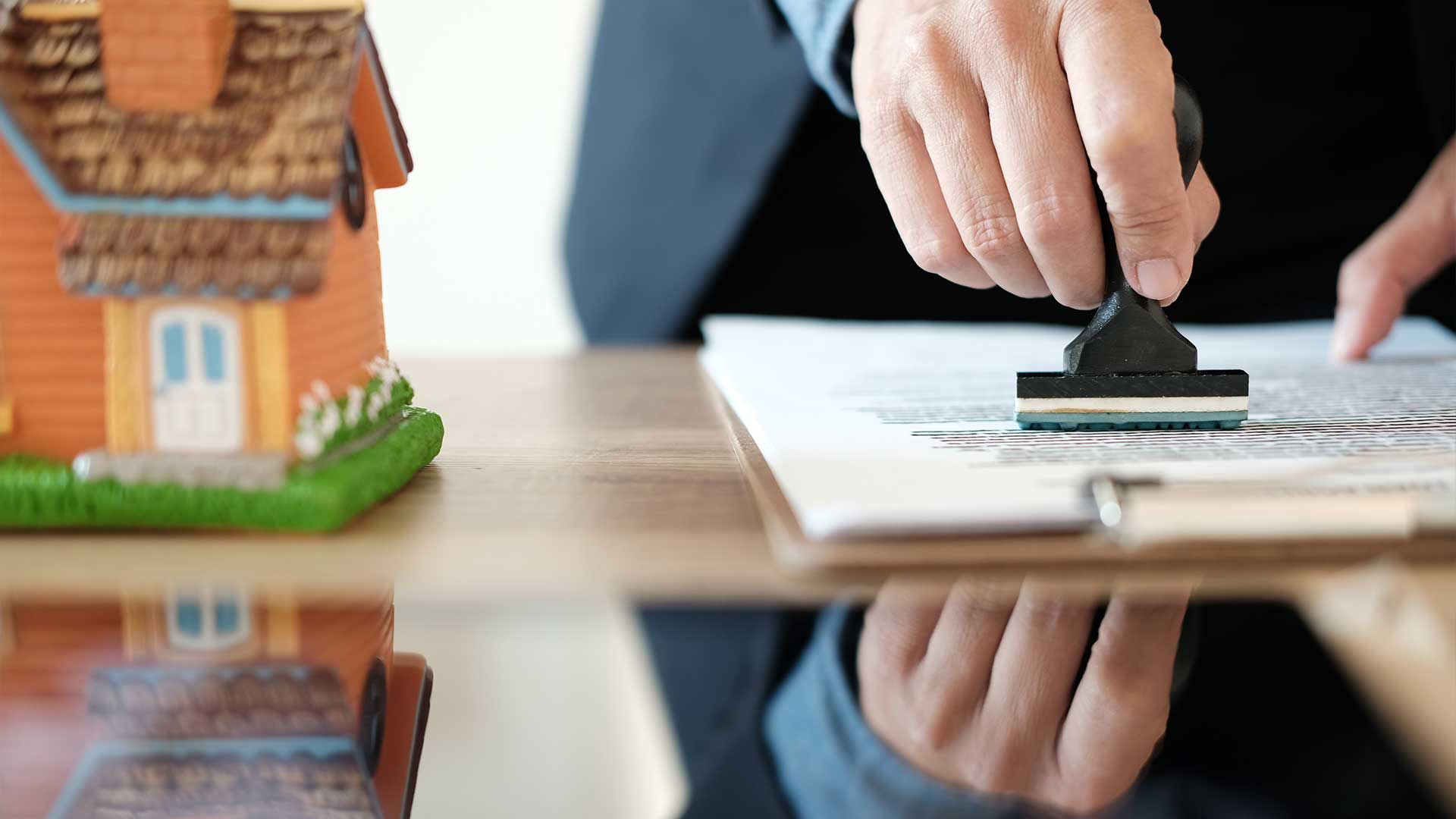Foreclosure Home Auctions: Pros and Cons for Buyers.
In today's real estate market, the term "foreclosure home auction" has become increasingly common, drawing the attention of prospective buyers looking for a unique opportunity to acquire properties at potentially lower prices. For those unfamiliar with the concept, foreclosure home auctions represent a distinct method of purchasing real estate, one that offers both promising advantages and notable challenges. In this article, we will delve into the world of foreclosure home auctions and explore the pros and cons that buyers need to consider before taking the plunge.
Foreclosure home auctions are events where properties, often seized by lenders due to mortgage defaults, are put up for sale to the highest bidder. While these auctions can provide an avenue to secure properties at a fraction of their market value, they also come with certain complexities that demand thorough understanding and preparation. To help you make informed decisions in this unique real estate landscape, we'll walk you through the potential benefits and drawbacks of participating in foreclosure home auctions. Whether you're a first-time buyer or an experienced investor, this guide will shed light on what to expect when venturing into the world of
foreclosure auctions.
What Are Foreclosure Home Auctions?
Foreclosure home auctions are auctions where properties, often seized by lenders due to mortgage defaults, are put up for sale to the highest bidder. While these auctions can provide an avenue to secure properties at a fraction of their market value, they also come with certain complexities that demand thorough understanding and preparation.
One key point to grasp is that there are different types of foreclosure auctions, including Sheriff's auctions and trustee sales. Sheriff's auctions typically involve properties seized due to legal actions, while trustee sales involve properties repossessed by lenders. Understanding these distinctions is essential for buyers considering participation in a foreclosure home auction.
By gaining insight into what foreclosure home auctions entail, you can better evaluate whether this avenue aligns with your real estate goals and risk tolerance. In the sections that follow, we will explore the potential advantages and disadvantages of buying properties at these auctions in more detail. Whether you're a seasoned investor or a first-time buyer, having a clear understanding of the auction process is vital for making informed decisions and mitigating risks.
The Pros of Buying at Foreclosure Home Auctions
Foreclosure home auctions offer several enticing advantages for potential buyers. These benefits can make them an appealing option for those seeking real estate opportunities:
1. Potential for Below-Market Prices: One of the most significant advantages of foreclosure home auctions is the chance to acquire properties at prices significantly below their market value. Lenders are often motivated to sell quickly, making it possible for savvy buyers to secure excellent deals.
2. Opportunity for Property Appreciation: If you choose the right property and location, there's potential for significant appreciation over time. Buying a foreclosure at a lower cost can result in substantial equity gains as the property's value increases.
3. Variety of Property Types and Locations: Foreclosure auctions offer a diverse range of properties, from single-family homes to commercial spaces. Buyers can explore options in various locations, enabling them to diversify their real estate portfolios.
4. Speed of the Transaction: Foreclosure auctions typically involve a faster transaction process compared to traditional home purchases. Once you win a bid, you can often close the deal within a few weeks, allowing for quicker property acquisition.
However, it's essential to recognize that these advantages come with certain trade-offs and potential downsides. In the next section, we'll explore the cons of buying at foreclosure home auctions, helping you weigh the pros and cons effectively to make informed decisions. Understanding both sides of the coin is crucial for minimizing risks and maximizing the benefits of this unique
real estate investment approach.
The Cons of Buying at Foreclosure Home Auctions
While foreclosure home auctions offer attractive opportunities, they are not without their drawbacks and challenges. It's crucial for potential buyers to consider these factors before engaging in the auction process:
1. Limited Inspection Time: Buyers often have limited time to inspect properties before bidding. This can be a significant disadvantage as it may lead to unforeseen issues with the property's condition or necessary repairs.
2. Competition from Experienced Investors: Auctions can be highly competitive, with experienced investors often participating. Novice buyers may find it challenging to outbid or negotiate effectively against these seasoned competitors.
3. Risk of Hidden Liens or Property Condition Issues: Foreclosed properties may come with hidden liens, outstanding taxes, or significant repair needs that can increase the overall cost of the purchase. Conducting thorough due diligence is essential to uncover such issues.
4. No Guarantee of Clear Title: Winning a bid at a foreclosure auction does not guarantee a clear title. Buyers may encounter title-related problems or legal issues associated with the property after the purchase.
To mitigate these cons, buyers must invest time in research and due diligence, seek professional advice when needed, and set clear budget limits. While foreclosure auctions offer the potential for great deals, they also require careful consideration and preparation to navigate the challenges effectively.
In the following sections, we will delve deeper into specific aspects of buying at foreclosure home auctions, such as due diligence steps and financing options, to help you make informed decisions and maximize the benefits while minimizing the risks. Understanding these intricacies is key to achieving success in the world of foreclosure real estate investments.
The Cons of Buying at Foreclosure Home Auctions
While foreclosure home auctions offer attractive opportunities, they are not without their drawbacks and challenges. It's crucial for potential buyers to consider these factors before engaging in the auction process:
1. Limited Inspection Time: Buyers often have limited time to inspect properties before bidding. This can be a significant disadvantage as it may lead to unforeseen issues with the property's condition or necessary repairs.
2. Competition from Experienced Investors: Auctions can be highly competitive, with experienced investors often participating. Novice buyers may find it challenging to outbid or negotiate effectively against these seasoned competitors.
3. Risk of Hidden Liens or Property Condition Issues: Foreclosed properties may come with hidden liens, outstanding taxes, or significant repair needs that can increase the overall cost of the purchase. Conducting thorough due diligence is essential to uncover such issues.
4. No Guarantee of Clear Title: Winning a bid at a foreclosure auction does not guarantee a clear title. Buyers may encounter title-related problems or legal issues associated with the property after the purchase.
To mitigate these cons, buyers must invest time in research and due diligence, seek professional advice when needed, and set clear budget limits. While foreclosure auctions offer the potential for great deals, they also require careful consideration and preparation to navigate the challenges effectively.
In the following sections, we will delve deeper into specific aspects of buying at foreclosure home auctions, such as due diligence steps and financing options, to help you make informed decisions and maximize the benefits while minimizing the risks. Understanding these intricacies is key to
achieving success in the world of foreclosure real estate investments.
Due Diligence: Essential Steps for Buyers
Given the potential risks associated with foreclosure home auctions, thorough due diligence is paramount for buyers. Here are the essential steps you should take before participating in an auction:
1. Property Research: Begin by identifying properties of interest well in advance of the auction date. Research the history of the property, including any previous sales, liens, or outstanding issues. Websites, public records, and real estate professionals can be valuable resources for this information.
2. Physical Inspection: While there may be limited time for inspection, try to visit the property to assess its condition. Look for signs of damage or neglect, as well as potential repair costs. Keep in mind that some properties may be occupied or inaccessible.
3. Title Search: Conduct a thorough title search to ensure there are no hidden liens or legal encumbrances on the property. Title issues can be costly and problematic, so addressing them before the auction is crucial.
4. Financial Evaluation: Determine your budget and financing options. Consider how much you are willing to bid and whether you have the means to secure financing if necessary. Keep in mind that some auctions may require immediate payment in cash or certified funds.
5. Legal Advice: Consult with legal professionals or real estate experts who specialize in foreclosure transactions. They can help you understand the legal aspects and potential risks associated with the specific auction you're interested in.
By diligently following these steps, you can minimize the risk of unexpected surprises and make more informed decisions when participating in a foreclosure home auction. The due diligence process is a crucial aspect of successful real estate investment, and it plays an even more critical role in the unique environment of foreclosure auctions.
In the subsequent sections of this article, we will explore various financing options available to buyers, as well as provide practical tips for successful bidding, empowering you with the knowledge and tools needed to navigate foreclosure home auctions effectively.
Financing Options for Auction Purchases
Understanding the financing options available for purchasing properties at foreclosure home auctions is essential. Depending on your financial situation and goals, you may choose from several approaches:
1. Traditional Mortgages: While it's less common, some buyers opt for traditional mortgages to finance auction purchases. However, this route can be challenging due to the strict timelines involved, as traditional loans typically require a more extended approval process.
2. Hard Money Loans: Hard money loans are a popular choice for auction buyers. These loans are offered by private lenders and are based on the property's value rather than the borrower's creditworthiness. They provide a faster approval process, making them suitable for auctions.
3. Cash Deals: Cash offers are often preferred in foreclosure auctions. Having the funds readily available gives you a competitive edge, as some auctions require immediate payment upon winning the bid. Cash offers can also simplify the purchase process.
4. Bridge Loans: Bridge loans can be an option for buyers who plan to secure traditional financing after winning an auction. These short-term loans bridge the gap between the auction purchase and obtaining a long-term mortgage.
5. Home Equity Lines of Credit (HELOCs): If you already own a property with substantial equity, you can consider using a HELOC to finance your auction purchase. This allows you to leverage your existing home's equity.
When choosing a financing option, carefully assess your financial situation, risk tolerance, and the specific requirements of the auction you're interested in. Keep in mind that some auctions may have unique financing conditions, so it's crucial to be prepared and have your financing in place before participating.
In the upcoming sections, we will explore strategies and tips for successful bidding at foreclosure home auctions. These insights will help you navigate the competitive auction environment and increase your chances of securing the properties you desire.
Tips for Successful Bidding
Participating in a foreclosure home auction can be a competitive and high-stakes endeavor. To increase your chances of success and make informed decisions, consider the following tips:
1. Set a Budget: Determine your maximum bid amount and stick to it. Avoid getting caught up in the excitement of bidding and overspending. A well-defined budget helps you avoid financial strain.
2. Research the Property: Gather as much information as possible about the property you intend to bid on. This includes its condition, market value, and potential repair costs. Knowing the property's true value ensures you don't overpay.
3. Attend Auctions as an Observer: If you're new to foreclosure auctions, consider attending a few as an observer first. This allows you to familiarize yourself with the process, bidding dynamics, and competition.
4. Stay Calm and Patient: Avoid impulsive bidding. Wait until the right moment to make your move. Bidding wars can escalate quickly, so it's essential to remain composed.
5. Know Your Limits: Be aware of your financial limits and the amount of risk you're willing to take. Winning a bid is just the beginning; you'll need additional funds for potential repairs and holding costs.
6. Understand Auction Rules: Each auction may have specific rules and requirements. Familiarize yourself with these rules in advance to avoid disqualification or unexpected surprises.
7. Have Financing in Place: If you're not paying in cash, ensure your financing is secured and ready to go. Some auctions require immediate payment upon winning a bid.
8. Consider Professional Help: Real estate agents, attorneys, or auction experts can provide valuable guidance. They can help you navigate the process, understand legalities, and make informed decisions.
9. Inspect Properties Thoroughly: Despite limited inspection time, do your best to assess the property's condition. Factor potential repair costs into your budget.
10. Learn from Experience: Whether you win or lose a bid, take it as a learning opportunity. Analyze your experiences to refine your bidding strategies for future auctions.
Remember that success in foreclosure home auctions often requires a combination of preparation, strategy, and discipline. By following these tips and continuously improving your auction skills, you can increase your chances of securing valuable properties at favorable prices.
In conclusion, while foreclosure home auctions offer potential advantages for buyers, they also present challenges that necessitate careful consideration and preparation. By thoroughly researching properties, understanding financing options, and employing effective bidding strategies, buyers can navigate this unique real estate landscape successfully and make the most of the opportunities available.
Conclusion
In the realm of real estate investment, foreclosure home auctions stand as a unique avenue that can lead to significant rewards for buyers who approach them with knowledge and caution. With the potential for acquiring properties at below-market prices and the prospect of future appreciation, foreclosure auctions hold undeniable appeal.
However, it's equally essential to acknowledge the potential pitfalls, such as limited inspection time, competition from experienced investors, hidden property issues, and the absence of a guaranteed clear title. To succeed in this dynamic arena, prospective buyers must conduct diligent research, engage in thorough due diligence, and consider their financing options carefully.
At W & J Auction Service Inc., we understand the intricacies of foreclosure home auctions and are here to provide expert guidance every step of the way. Our team of professionals can help you navigate these auctions with confidence, ensuring that you make informed decisions that align with your real estate goals and risk tolerance.
For personalized assistance and to learn more about how
W & J Auction Service Inc. can assist you in achieving success in foreclosure home auctions, please contact us at
575-763-7311. Don't miss out on the potential opportunities that foreclosure auctions offer—let us be your trusted partner in making the most of this unique real estate investment avenue.
FAQs
-
What is a foreclosure home auction?
A foreclosure home auction is a public sale where properties, often repossessed by lenders due to mortgage defaults, are sold to the highest bidder. These auctions offer the potential for buyers to acquire properties at prices below their market value.
-
What are the advantages of buying at foreclosure home auctions?
Buying at foreclosure auctions can provide several advantages, including the potential for below-market prices, opportunities for property appreciation, a variety of property types and locations, and a faster transaction process compared to traditional home purchases.
-
What are the disadvantages and risks associated with foreclosure home auctions?
There are several drawbacks and risks to consider, including limited inspection time, competition from experienced investors, the potential for hidden liens or property condition issues, and the absence of a guaranteed clear title.
-
How can I prepare for a foreclosure home auction?
To prepare for a foreclosure home auction, you should conduct thorough due diligence, which includes property research, physical inspection (if possible), title searches, setting a budget, and securing financing if necessary. Seeking legal or professional advice is also advisable.
-
What financing options are available for purchasing properties at foreclosure auctions?
Buyers at foreclosure auctions can consider various financing options, such as traditional mortgages (though less common), hard money loans, cash deals, bridge loans, or using a home equity line of credit (HELOC). The choice depends on your financial situation and the specific requirements of the auction.
Location
Business Hours
Monday:
8 AM – 8 PM
Tuesday:
8 AM – 8 PM
Wednesday:
8 AM – 8 PM
Thursday:
8 AM – 8 PM
Friday:
8 AM – 8 PM
Saturday:
8 AM – 8 PM
Sunday:
Closed
W & J Auction Service Inc.. All Rights Reserved.










